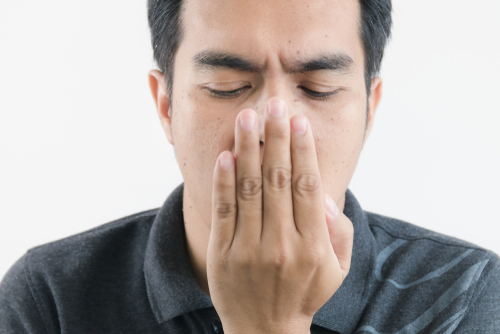Can you imagine a day without your teeth? It will not only affect your appearance but adversely affect your quality of life – apart from not being able to chew your food, you would not be able to talk properly as well which will likely lead to incredibly low confidence and self-esteem.
An estimated 75% of Malaysians are unaware of the need for oral health and 9 in 10 adults experience periodontal disease and dental caries, as revealed by the National Oral Health Survey of Malaysian Adults 2010 (Nohsa 2010). Though there are no latest statistics, the importance of oral health and hygiene continues to remain in the shadows.
Whether you are 8 or 80, your oral health is important. It touches every aspect of our lives but unfortunately, it is often taken for granted.

WHAT DO WE MEAN BY ORAL HEALTH?
Oral health goes beyond than just your breath, gums and teeth. WHO defines oral health as “a state of being free from chronic mouth and facial pain, oral and throat cancer, oral infection and sores, periodontal (gum) disease, tooth decay, tooth loss, and other diseases and disorders that limit an individual’s capacity in biting, chewing, smiling, speaking, and psychosocial wellbeing.”[1]
[1] World Health Organization. World Oral Health Report 2003. Published 2003. Accessed 15 February, 2018.

THE CONNECTION BETWEEN ORAL AND OVERALL HEALTH
Maintaining a good health care of your mouth, teeth and gums does not only help your appearance and affect your lifestyle, it also reflects the overall health of your body which can show you any signs of infections or diseases before you experience other symptoms.
The World Oral Health Report (2003) stated clearly that the relationship between oral health and general health has been proven by evidence. Over the years, several new evidences have emerged, further strengthening the case. Oral health and general health are related in four major ways:
- Poor oral health is significantly associated with major chronic diseases.
- Poor oral health causes disability.
- Oral health issues and major diseases share common risk factors.
- General health problems may cause or worsen oral health conditions.
LINKS TO MAJOR DISEASES
Your mouth is a window into the health of your body. It can show signs of nutritional deficiencies or general infection
HEART DISEASE
Patients with chronic gum conditions such as gingivitis or advanced periodontal disease have the highest risk for heart disease caused by poor oral health. Bacteria that’s associated with gum infection can enter the blood stream, where they attach to the blood vessels and increase your risk to cardiovascular disease. Other cardiovascular conditions such as atherosclerosis (clogged arteries) and stroke have also been linked to inflammation caused by oral bacteria, according to the American Heart Association.
DIABETES
The link between diabetes and oral health problems is high blood sugar. Diabetes can make the mouth dry, caused by a decreased flow of saliva which can further lead to soreness, ulcers, infections, and tooth decay. Since periodontal disease is a bacterial infection, people with uncontrolled diabetes might also experience more frequent and more severe gum disease.
Thrush is another oral health problem caused by a fungus that thrives on high levels of sugar in the saliva of people with uncontrolled diabetes. It can give your mouth and tongue a burning sensation.
DEMENTIA
A new study found gum disease bacteria in the brain samples of people with dementia, furthering the research into the link between oral health and dementia. Poor dental health increased the likelihood of dementia by 30% to 40% over a 32-year period, regardless of cardiovascular status, according to a report at the International Society of Vascular Behavioural and Cognitive Disorders.

DIGESTIVE ISSUES
The mouth plays an integral role in the digestive system as it is where physical and chemical digestive processes begin. Poor oral hygiene can cause bad bacteria in your saliva to travel down to your stomach, which can cause an imbalance in your digestive system, and subsequently digestive problems such as Gastroesophageal Reflux Disease (Heartburn), Inflammatory Bowel Disease and peptic ulcers.
SYMPTOMS OF POOR ORAL HYGIENE
Yellow teeth and bad breath are not the only signs that indicate you may be neglecting your oral hygiene and health. Here are others:
- Bleeding gums
- Swollen gums
- Irritated/red gums
- Receding gums
- Gum sensitivity
- Bad taste in mouth
- Teeth appear loose
- Tooth pain
- Cavities/decay

DAILY PRACTICES FOR GOOD ORAL HEALTH
Brush Twice A Day: It not only cleans your teeth but also stimulates your gums. Use a soft bristled toothbrush and a toothpaste with fluoride, which helps to fight tooth decay and protects your gums and teeth.
Floss Daily: This helps remove plaque and food particles in between the teeth and under the gum line.
Brush Your Tongue: Lightly brushing your tongue helps get rid of bad bacteria and smelly breath.
Eat Healthy: Avoid consuming food that’s high in carbohydrates, sugars and starches as they greatly contribute to the production of plaque acids that attack the tooth enamel.
Avoid Tobacco and Caffeine: Excessive daily use of these products can lead to tooth staining and loss, and in some scenarios, gum disease and cancer.

SMILE FOR A BETTER HEALTH
While your personal daily habits are crucial to your overall oral health, it is recommended to visit your dentist for cleanings and check-up at least twice a year. Seeing a dentist not only keeps your mouth in top shape but also allows your dentist to detect potential health issues and offer treatment solutions. Prevention is always better than cure.

